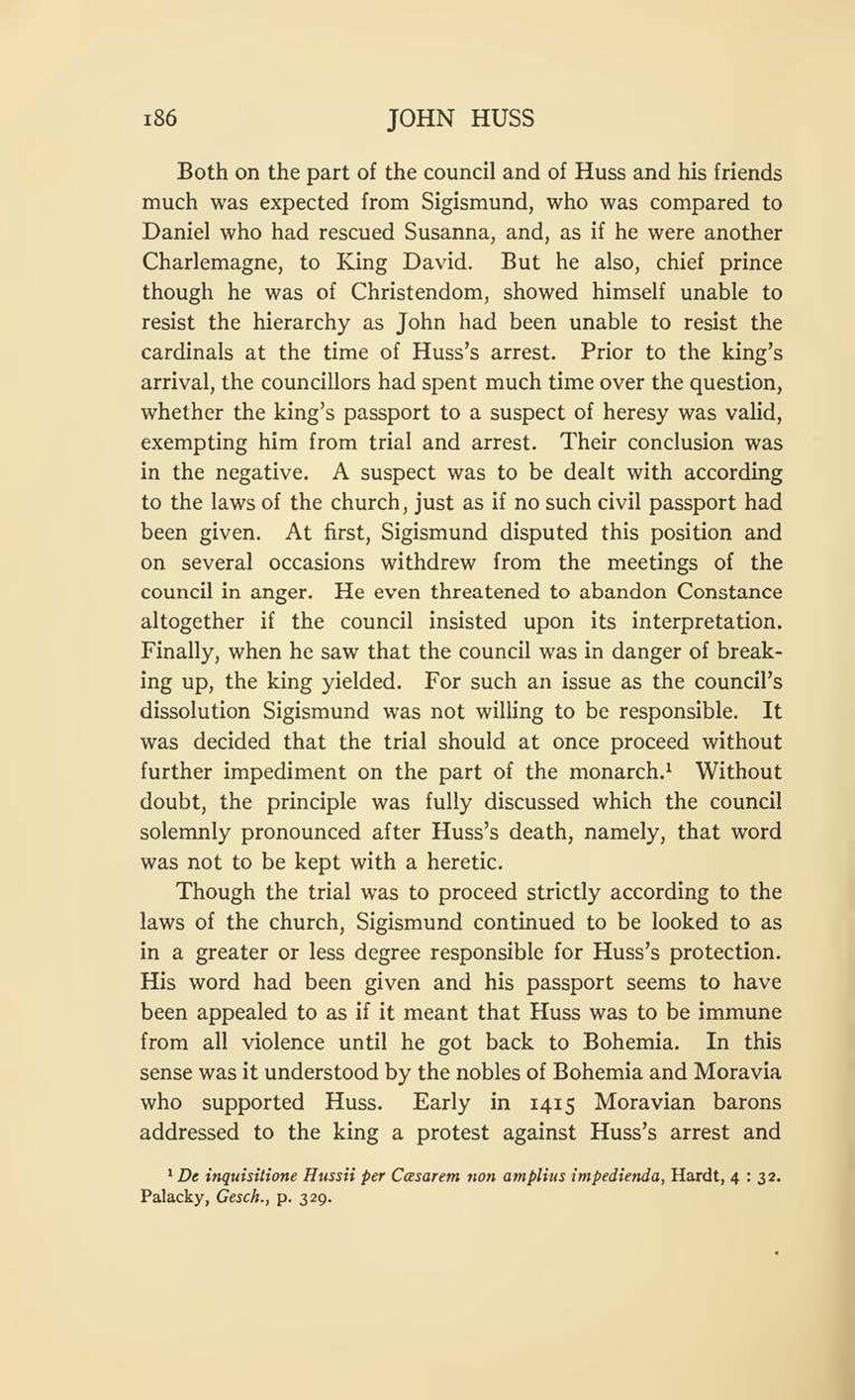Both on the part of the council and of Huss and his friends much was expected from Sigismund, who was compared to Daniel who had rescued Susanna, and, as if he were another Charlemagne, to King David. But he also, chief prince though he was of Christendom, showed himself unable to resist the hierarchy as John had been unable to resist the cardinals at the time of Huss’s arrest. Prior to the king’s arrival, the councillors had spent much time over the question, whether the king’s passport to a suspect of heresy was valid, exempting him from trial and arrest. Their conclusion was in the negative. A suspect was to be dealt with according to the laws of the church, just as if no such civil passport had been given. At first, Sigismund disputed this position and on several occasions withdrew from the meetings of the council in anger. He even threatened to abandon Constance altogether if the council insisted upon its interpretation. Finally, when he saw that the council was in danger of breaking up, the king yielded. For such an issue as the council’s dissolution Sigismund was not willing to be responsible. It was decided that the trial should at once proceed without further impediment on the part of the monarch.[1] Without doubt, the principle was fully discussed which the council solemnly pronounced after Huss’s death, namely, that word was not to be kept with a heretic.
Though the trial was to proceed strictly according to the laws of the church, Sigismund continued to be looked to as in a greater or less degree responsible for Huss’s protection. His word had been given and his passport seems to have been appealed to as if it meant that Huss was to be immune from all violence until he got back to Bohemia. In this sense was it understood by the nobles of Bohemia and Moravia who supported Huss. Early in 1415 Moravian barons addressed to the king a protest against Huss’s arrest and
- ↑ De inquisitione Hussii per Cæsarem non amplius impedienda. Hardt, 4: 32. Palacky. Gesch., p. 329.
